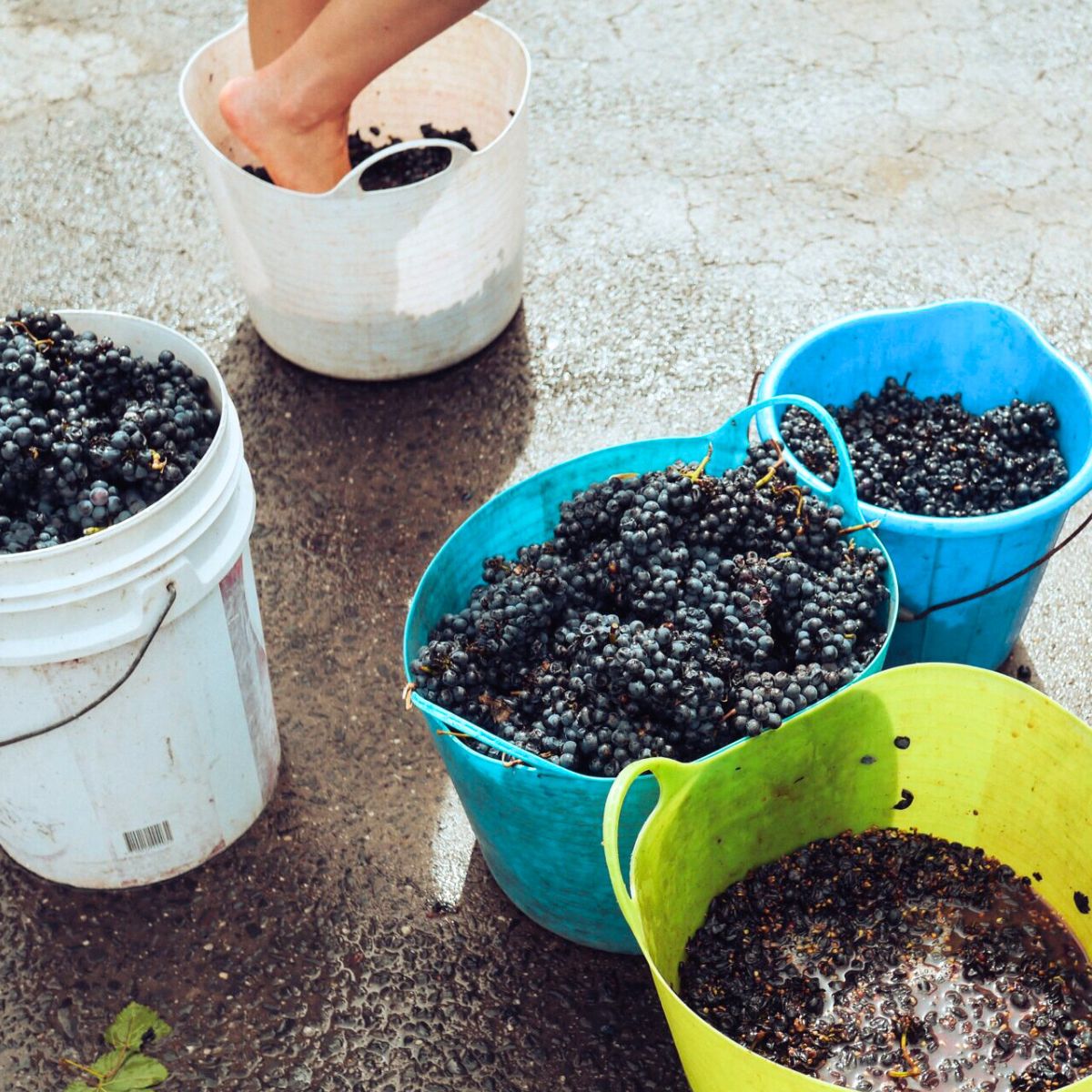3 Reasons for wine headaches
+ 3 easy ways to avoid the pain
Blog sample - personal interest

Sparkling, crisp, sweet, buttery, smooth, rich, robust – the blends and flavours of wine are limitless.
Imagine sipping a glass of wine to unwind at the end of a hard day… you feel a wave of relaxation wash over you. Or, how about opening a bottle to celebrate with your friends and family for a birthday, a dinner, a promotion, a girl’s night out or just because.
Then comes the dreaded wine headache!
Do you ever wonder why your friends are fine, but you tend to get raging headaches or sinus problems that evening or a dreaded hangover the next day?
There are some hidden evils in those heavenly bottles of wine that many people don’t know about or understand. But suffer no more! Here are 3 easy tips to follow. (Don’t worry: you are not alone, and the pain is real.)
3 Reasons For Your Wine Headaches
1. How Histamines in Red Wine May Cause Your Headaches

If you love red wine but tend to get headaches afterwards, here’s some sad news: the red grape skin and the juice’s natural properties are not your best friend and may be causing your headaches or migraines.
Unfortunately, during most of the red wine making process, the grape skins, with naturally high levels of histamines, stay in contact with the juice. So, your beloved robust, smooth red wines, like the Cabernet Sauvignons, Merlots and Malbecs naturally have higher levels of histamines when compared to most white wines because the juice for white wine is separated from the skins very early in the wine making process.
Some people have an intolerance to histamines because they don’t have enough of an enzyme in their small intestine to break the histamines down. When an excess amount of histamines enters the blood, the blood vessels become dilated and this dilation can cause headaches. Histamines can also cause a mild allergic reaction like seasonal allergies with flushing, or redness on their skin.
Spoiler alert: 2 of the 3 tools below can remove up to 95% of the histamines in your favourite red wines
2. How Tyramines in Red Wine May Cause Your Headaches

Tyramines are naturally occurring amino acids in our bodies which help regulate our blood pressure, and dilate and constrict our blood vessels. Drinks, such as red wine and food, like aged cheeses naturally have high levels of tyramine that can cause blood pressure spikes resulting in headaches or migraines, according to the Mayo Clinic. In addition, tyramine builds over time in aging wines and foods, so if you are prone to headaches from tyramines, start by not pairing your wine with aged cheeses, cured meats or fermented foods.
Please note: The Mayo Clinic also says to be careful of high-tyramine products if you are on certain antidepressants because some medications prevent our bodies from naturally breaking down the tyramine.
Tyramines are naturally occurring amino acids in our bodies which help regulate our blood pressure, and dilate and constrict our blood vessels. Drinks, such as red wine and food, like aged cheeses naturally have high levels of tyramine that can cause blood pressure spikes resulting in headaches or migraines, according to the Mayo Clinic. In addition, tyramine builds over time in aging wines and foods, so if you are prone to headaches from tyramines, start by not pairing your wine with aged cheeses, cured meats or fermented foods.
Please note: The Mayo Clinic also says to be careful of high-tyramine products if you are on certain antidepressants because some medications prevent our bodies from naturally breaking down the tyramine.
Tyramines are naturally occurring amino acids in our bodies which help regulate our blood pressure, and dilate and constrict our blood vessels. Drinks, such as red wine and food, like aged cheeses naturally have high levels of tyramine that can cause blood pressure spikes resulting in headaches or migraines, according to the Mayo Clinic. In addition, tyramine builds over time in aging wines and foods, so if you are prone to headaches from tyramines, start by not pairing your wine with aged cheeses, cured meats or fermented foods.
Please note: The Mayo Clinic also says to be careful of high-tyramine products if you are on certain antidepressants because some medications prevent our bodies from naturally breaking down the tyramine.
Tyramines are naturally occurring amino acids in our bodies which help regulate our blood pressure, and dilate and constrict our blood vessels. Drinks, such as red wine and food, like aged cheeses naturally have high levels of tyramine that can cause blood pressure spikes resulting in headaches or migraines, according to the Mayo Clinic. In addition, tyramine builds over time in aging wines and foods, so if you are prone to headaches from tyramines, start by not pairing your wine with aged cheeses, cured meats or fermented foods.
Please note: The Mayo Clinic also says to be careful of high-tyramine products if you are on certain antidepressants because some medications prevent our bodies from naturally breaking down the tyramine.
Tyramines are naturally occurring amino acids in our bodies which help regulate our blood pressure, and dilate and constrict our blood vessels. Drinks, such as red wine and food, like aged cheeses naturally have high levels of tyramine that can cause blood pressure spikes resulting in headaches or migraines, according to the Mayo Clinic. In addition, tyramine builds over time in aging wines and foods, so if you are prone to headaches from tyramines, start by not pairing your wine with aged cheeses, cured meats or fermented foods.
Please note: The Mayo Clinic also says to be careful of high-tyramine products if you are on certain antidepressants because some medications prevent our bodies from naturally breaking down the tyramine.
Tyramines are naturally occurring amino acids in our bodies which help regulate our blood pressure, and dilate and constrict our blood vessels. Drinks, such as red wine and food, like aged cheeses naturally have high levels of tyramine that can cause blood pressure spikes resulting in headaches or migraines, according to the Mayo Clinic. In addition, tyramine builds over time in aging wines and foods, so if you are prone to headaches from tyramines, start by not pairing your wine with aged cheeses, cured meats or fermented foods.
Please note: The Mayo Clinic also says to be careful of high-tyramine products if you are on certain antidepressants because some medications prevent our bodies from naturally breaking down the tyramine.
3. How Sugar, NOT Sulfites May Cause Your Headaches

In addition to histamines and tyramines, sugar and sulfites are found organically in all wines. Sulfites act as a natural preservative, although they may be added to sweeter wines to prevent any more fermentation by the higher sugar content. When your sugar intake is higher than normal, your deliciously ‘sweet’ summer patio wines, like the Moscato’s and Zinfandels, can dehydrate you faster, which can cause… you guessed it: a wine headache or dehydration headache.
Myth Buster: There is not enough evidence to say sulfites cause wine headaches.
Some people may have sensitivities to sulfites, so they could experience allergy-like symptoms, like nasal congestion or skin flushing.
Don’t lose hope: you can still have your wine and drink it too!
In addition to histamines and tyramines, sugar and sulfites are found organically in all wines. Sulfites act as a natural preservative, although they may be added to sweeter wines to prevent any more fermentation by the higher sugar content. When your sugar intake is higher than normal, your deliciously ‘sweet’ summer patio wines, like the Moscato’s and Zinfandels, can dehydrate you faster, which can cause… you guessed it: a wine headache or dehydration headache.
Myth Buster: There is not enough evidence to say sulfites cause wine headaches.
Some people may have sensitivities to sulfites, so they could experience allergy-like symptoms, like nasal congestion or skin flushing.
Don’t lose hope: you can still have your wine and drink it too!
In addition to histamines and tyramines, sugar and sulfites are found organically in all wines. Sulfites act as a natural preservative, although they may be added to sweeter wines to prevent any more fermentation by the higher sugar content. When your sugar intake is higher than normal, your deliciously ‘sweet’ summer patio wines, like the Moscato’s and Zinfandels, can dehydrate you faster, which can cause… you guessed it: a wine headache or dehydration headache.
Myth Buster: There is not enough evidence to say sulfites cause wine headaches.
Some people may have sensitivities to sulfites, so they could experience allergy-like symptoms, like nasal congestion or skin flushing.
Don’t lose hope: you can still have your wine and drink it too!
In addition to histamines and tyramines, sugar and sulfites are found organically in all wines. Sulfites act as a natural preservative, although they may be added to sweeter wines to prevent any more fermentation by the higher sugar content. When your sugar intake is higher than normal, your deliciously ‘sweet’ summer patio wines, like the Moscato’s and Zinfandels, can dehydrate you faster, which can cause… you guessed it: a wine headache or dehydration headache.
Myth Buster: There is not enough evidence to say sulfites cause wine headaches.
Some people may have sensitivities to sulfites, so they could experience allergy-like symptoms, like nasal congestion or skin flushing.
Don’t lose hope: you can still have your wine and drink it too!
In addition to histamines and tyramines, sugar and sulfites are found organically in all wines. Sulfites act as a natural preservative, although they may be added to sweeter wines to prevent any more fermentation by the higher sugar content. When your sugar intake is higher than normal, your deliciously ‘sweet’ summer patio wines, like the Moscato’s and Zinfandels, can dehydrate you faster, which can cause… you guessed it: a wine headache or dehydration headache.
Myth Buster: There is not enough evidence to say sulfites cause wine headaches.
Some people may have sensitivities to sulfites, so they could experience allergy-like symptoms, like nasal congestion or skin flushing.
Don’t lose hope: you can still have your wine and drink it too!
A Wine Lover’s Three Favourite Ways to Avoid the Wine Headache Pain:
Water, Aerators and Wine Wands, oh my!
1. WATER is Your Best Friend
Hydrate, hydrate and hydrate some more.
Avoid dehydration headaches by drinking lots of water before and while you sip your favourite wine. Otherwise, your poor body is going to use all its energy to remove existing H2O from your body to help your liver flush out the sugar and alcohol. Did you know that alcohol is actually the main source of headaches for most people?
Rule of Thumb: 1 glass of water with 1 glass of wine
2. Do Aerators Really Help Prevent Wine Headaches? Check out TheWave(TM)
Aerators can be attached at the top of the wine bottle for easy pouring. It allows the wine to breath and any excess sulfites to escape. Most aerators on the market seem to filter out sulfites, so if sulfites are your concern, this may be the easiest way to enjoy your wine.
PureWineTM has a cool aerator called the WaveTM with a patented filter that eliminates histamines and sulfites without changing the taste or impacting your favourite wine in any way. Each WaveTM is about $8-9 and is designed to be used once.
3. The Magic of the Wine Wand (TM) – Perfect for a Glass of Wine out with Friends?
PureWineTM has the ultimate wine lover’s gadget called the WandTM. It also filters out the evil histamines and sulfites without sacrificing taste and quality – and it’s perfect for a single glass of wine. It costs about $1-2 each depending on the quantity, and it’s also designed for single use. Just let it sit in your glass for about 3 minutes before removing and you’re good to go!
How do You Know What’s Triggering Your Wine Headache?

Everyone is different, so it’s important to figure out which kinds of wines seem to be triggering your symptoms and headaches. The best way to figure out your wine sensitivity is to start from scratch like any food elimination diet.
Your wine mission should you choose to accept it:
- Start with 1 kind of wine, 1 glass at a time (of course!)
- Start with a white wine because red wine has more going on with it
- Try letting the wine breathe so any excess sulfites can escape
- Avoid pairing your wines with aged foods, so you don’t have those nasty tyramines interfering with your experiment
- Hydrate as you go
- If you’re still getting headaches, you may want to try PureWine’s WaveTM or the WandTM
- If everything’s great, move on to red wine and keep exploring!
- You can also check out your favourite vineyards and learn about their wine making process
Think of it as a quest to find the best and most delicious wine for you and keep sipping. (You can do this!)
